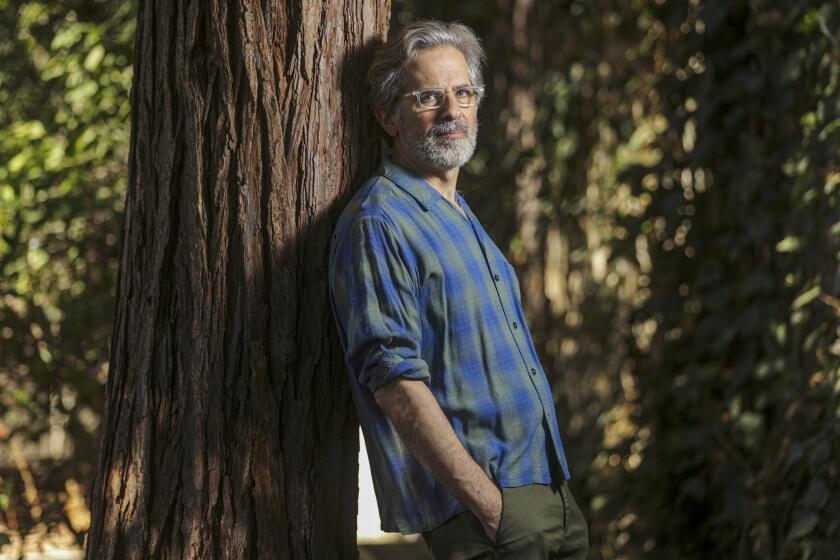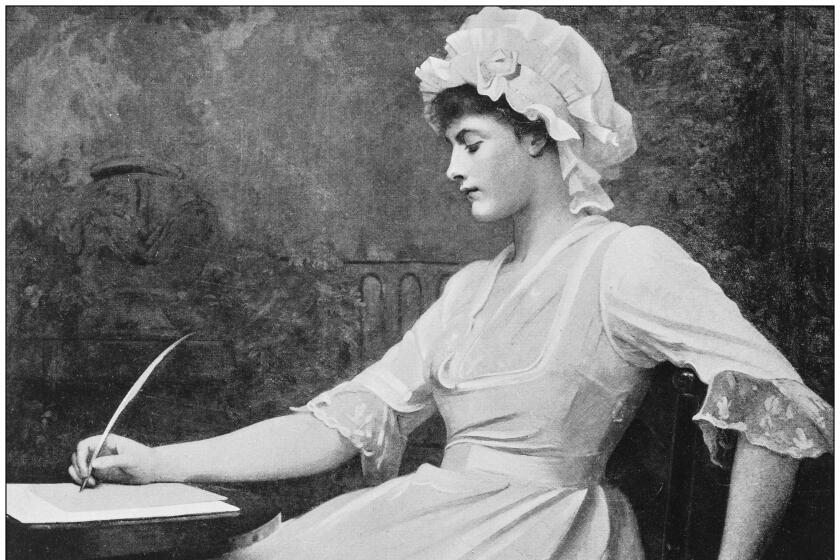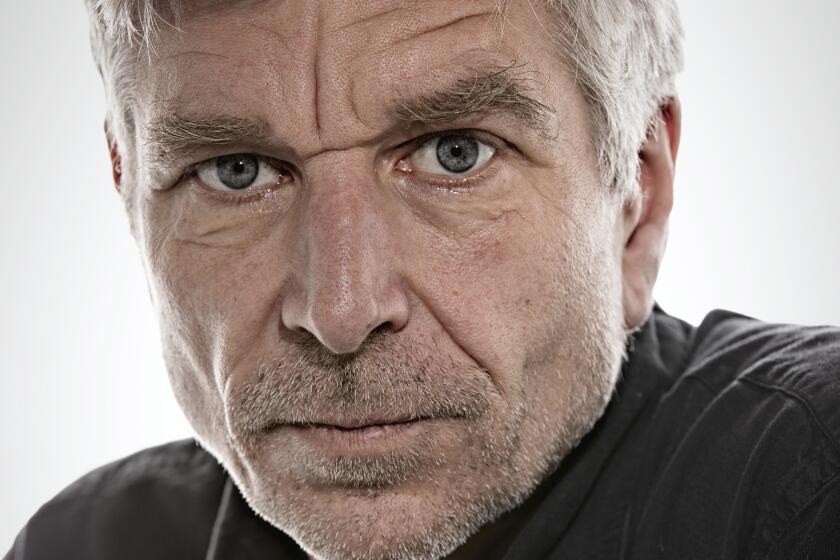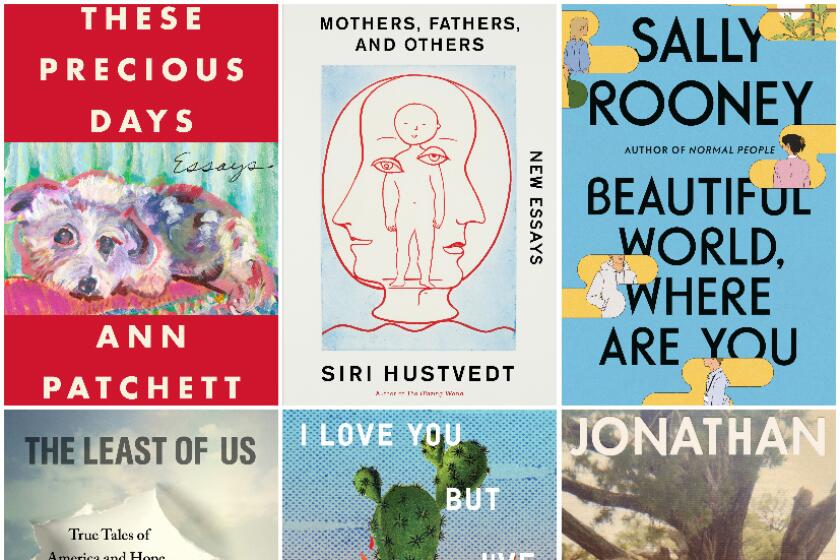Review: Is Jonathan Franzen too big to fail?
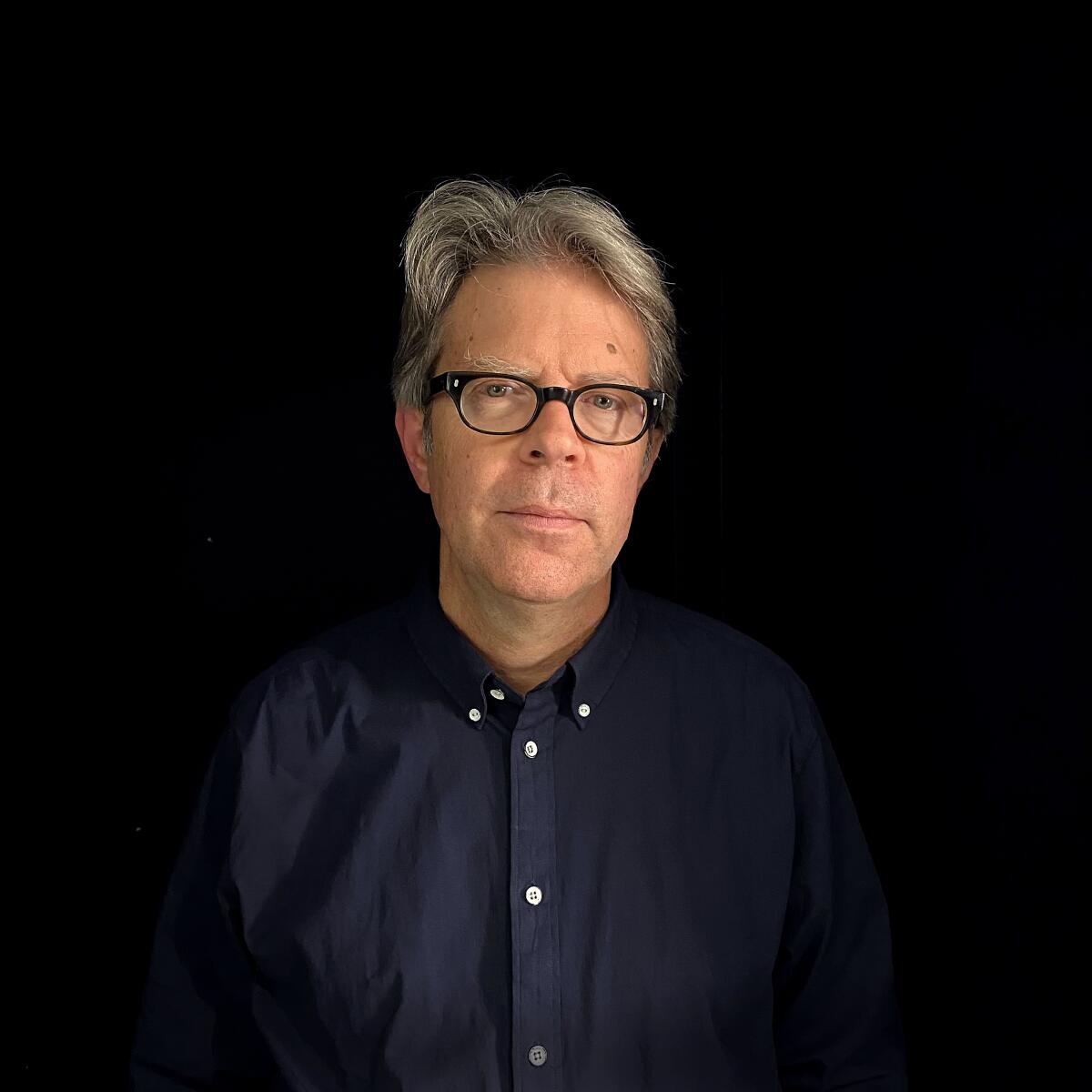
- Share via
On the Shelf
Crossroads
By Jonathan Franzen
FSG: 592 pages, $30
If you buy books linked on our site, The Times may earn a commission from Bookshop.org, whose fees support independent bookstores.
I’ve long had a soft spot for Jonathan Franzen’s essay “Why Bother?” Originally published in Harper’s in 1996, his manifesto for a more socially engaged literature — of the kind he went on to write — incorporates some of my favorite modes of Franzen: melancholic, earnest, esoteric, a little whiny. He’d published two novels, which no one seemed to have read. He was angry. He had writer’s block. He was tired, terrified of writing for no one. Pre-Oprah, pre-adulation; it’s like those snapshots in Us Weekly: J Franz, he’s just like US!
Then, of course, “The Corrections” happened. Then “Freedom.” “Purity” sold less than an eighth of the previous two novels but still did better than almost every other book in 2015 (and I would argue it was formally more interesting). Three years after that, Franzen was quoted as saying he “doesn’t know if anyone has more than six fully realized novels inside of him.” And yet here is “Crossroads,” his sixth — but the first in a proposed trilogy.
The title of the trilogy, “A Key to All Mythologies,” is also the name of Rev. Casaubon’s uncompleted work of theological scholarship in George Eliot’s “Middlemarch.” The irony here checks out: Casaubon, not unlike so many of Franzen’s male characters, is self-righteous, pompous, largely ineffectual. Something of a joke.
The family in “Crossroads” is also steeped in God. The Hildebrandts are made up of Russ, an associate pastor; Marion, a stay-at-home mom; and four kids — Clem, Becky, Perry and Judson. The first section is titled “Advent.” It’s Dec. 23, 1971, suburban Chicago. The town is New Prospect; dad drives a Fury; Crossroads is the name of the youth group created by Rick Ambrose, Russ’ younger protégé turned nemesis. Subtlety has never been Franzen’s thing.
Russ is considering cheating. Three years ago he suffered a humiliation, which he blames in part on his wife. “Marion was inseparable from an identity that had proved to be humiliating. It had taken Frances Cottrell to redeem it.” Frances is his new pursuit: “sagless, pouchless, flawless, lineless, an apparition of vitality in a snug paisley sleeveless dress” 10 years his junior, with a teenage son, a year from the loss of a husband she did not particularly like.
The novelist perhaps most associated with Brooklyn lives in Claremont and has a delightful new dystopian novel out, “The Arrest”
Franzen’s breadth remains extraordinary. Here is Taffy Brodesser-Akner in her wonderful 2018 New York Times Magazine Franzen profile: “He makes no points that can be distilled to a few words and still be understood in their breadth. The breadth is the point.” This also makes it difficult to quote the novel. The sentences are often good, but it’s the way they accrue and interact, pile up over pages, that gives them their effect.
The world he builds is lush and complicated, immersive and alive. You internalize the floor plans of the house and church, learn to navigate New Prospect’s streets. The pace is slow and careful. There is interpersonal pressure, small-scale suspense: Clem’s girlfriend calls him on his privileged avoidance of Vietnam; Marion begins seeing a psychiatrist, reaches out to an old sort-of boyfriend, starts smoking again and losing weight; Becky gets a fraught and unexpected windfall, has a crush on someone else’s boyfriend, betrays her father, is less than Good for the first time in her life; Perry’s weed dealing escalates.
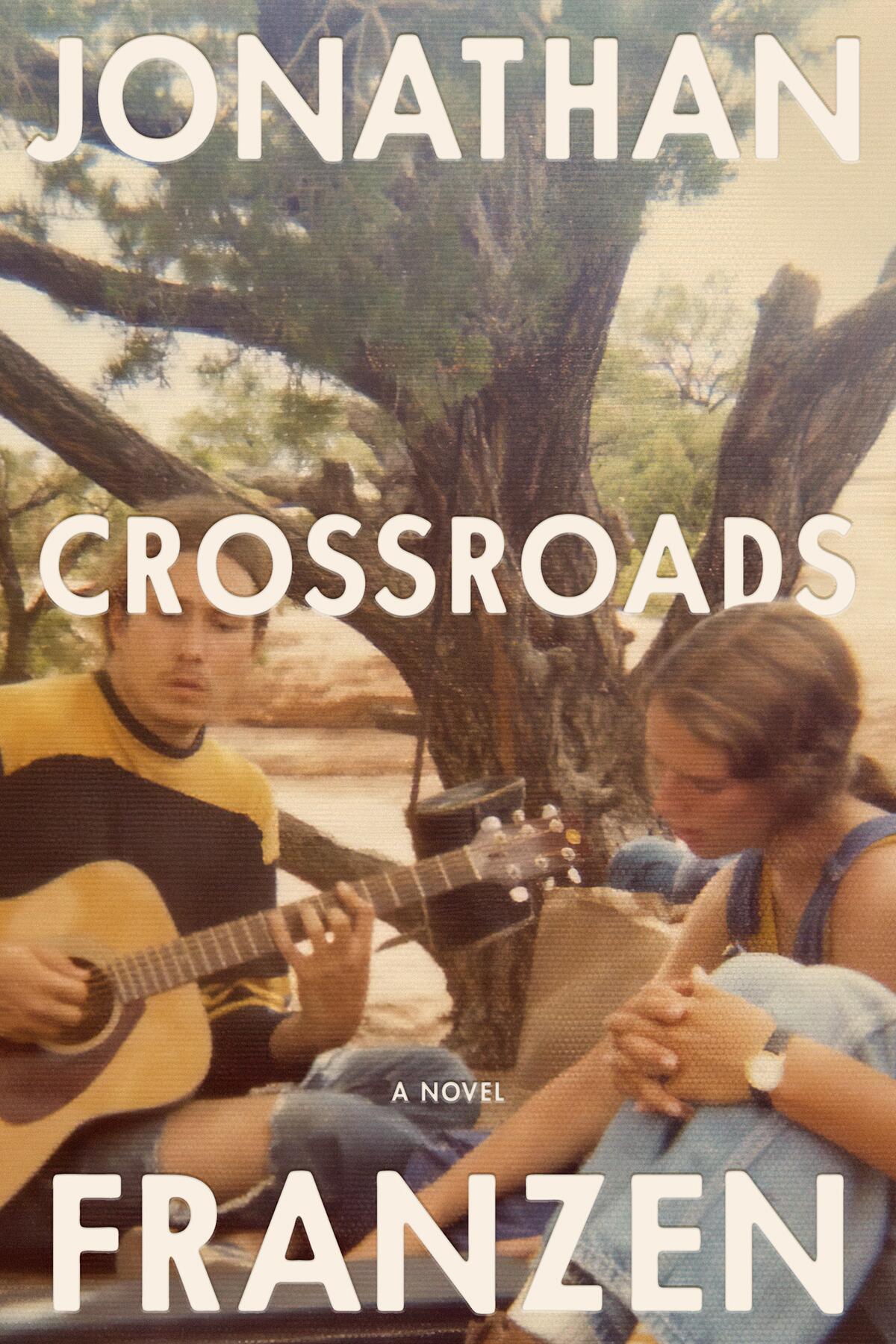
Each character inhabits an individual-scale version of a timely social crisis — each on the verge or in the midst of shift or rupture. And yet, while they are all under pressure, the present action stagnates; shifts in time and among characters make it more difficult to feel the press of thrill or threat.
And then, on page 358, the plot picked up: My skin got that proper prickle. Events were promised, consequences loomed, and because Franzen is a man who hits his beats, they came. And they felt weightier because of all that came before. If anything, this slow burn felt emboldening. What, after all, do we read for? To rush headlong through a plot as if it were a Netflix treatment? How many such novels have I read that made me want to die? What about, instead, a deliberate engagement with characters, an unfurling of their history and thinking, an attempt at care and intimacy? Also, there is something fundamentally fun about getting caught up in the sheer sweep of a Franzen novel (except the first two, neither of which I will claim to have finished reading).
It should be said that the characters do not feel fully human; they feel allegorical. There’s lots of talk of God and goodness; past traumas are overwrought. The place we find Marion near the end feels both inevitable (by the novel’s logic) and absurd (by life’s). The characters feel, in other words, like characters: incredibly well-constructed pieces moved through the novel’s equally well-constructed world.
Novelist Lynn Steger Strong on the revolutionary passivity of Rachel Cusk, Ottessa Moshfegh and Sally Rooney — how we’ve misread them and what comes next.
Leave the acute depiction of individual human consciousness to the post-Franzen vanguard: Lerner, Cusk, Knausgaard. Franzen, meanwhile, has always been thought of as a throwback — but to whom or when, I can never quite place. Dickens is too busy, Faulkner much more difficult; Roth, Updike and Bellow all seem less interested in women. The books can feel as pointedly political as DeLillo, but (pre-Oprah novels aside) Franzen is no systems novelist. Two influences Franzen claims are Paula Fox and Penelope Fitzgerald — two of my favorite writers — but their brilliance is tied up not only in precision and verisimilitude but also in their brevity.
Franzen can spin a stellar yarn; “Crossroads” is further proof of that. Yet the sentences can get sloppy, attention lags. One wonders, why these seven good-to-great sentences, when one or two sharper ones could have held them all? By the end, it felt like the story was just barely getting off the ground.
Granted, it’s the start of a trilogy, but what to make of the presumption that the reader will keep returning to a project that hasn’t yet shown it knows how or where to land? Bigness can create a feeling of fullness, but also exhaustion. “Who has the time?” said another mom at camp pickup when she saw me reading “Crossroads” and I told her it was the first of three.
After finishing the novel, I reread a lot of Franzen’s nonfiction, including that Harper’s essay. Unfair as it may be to once again subject his persona to review, it would be absurd not to admit that I have a complicated relationship with the idea of him, as a female novelist who feels sometimes as if the only way to get any traction as a (female) novelist is to cultivate a certain cold detachment that Franzen gets to disavow.
In ‘The Morning Star,’ Knausgaard’s first major novel since his semi-fictional ‘My Struggle,’ psychodramas are outshined by a cosmic disturbance.
It is also true that his relationship to the world is inseparable from his flaws as a novelist. I realized, this time — reading the Harper’s essay, the interviews and profiles — that Franzen’s never actually experienced failure, at least not in the way most of us have. Those first two books still earned advances large enough for him to write full time; there is a quick mention in the essay of a limo ride to a Vogue shoot during the promotion of one of those “failed books.” He is a man who disavowed Oprah and still thrived. He is, has been his whole career, to use an awful capitalist term, too big to fail.
I have less a criticism than a request for Franzen. Great work often seems to sit just on the precipice of failure; so much of what lights me up sits just shy of utter tripe. I wonder about the dogged certainty with which “Crossroads” seems to have been written, the almost unfathomable (to me) trust that there’s inherent value in all the (many) things the writer has to say. In “Crossroads,” I felt the stolid knowledge that must come from decades of succeeding, a writer in full possession of his powers, etc. What I did not feel was the thrill of failure’s threat.
I wondered often, after, what that might look like for Franzen — who is an extraordinary novelist. How, truly fearing failure, he might find ways to surprise us and himself. What I hope for the next two books of this “Key to All Mythologies” is that they engage just as carefully and deliberately as “Crossroads” with the world he’s building, but that they also push to reimagine what books and their writers might be capable of.
Strong is a critic and the author, most recently, of the novel “Want.”
Sally Rooney, Anthony Doerr, Maggie Nelson, Richard Powers, Jonathan Franzen — the list goes on. Four critics on kicking off a big, bookish fall.
More to Read
Sign up for our Book Club newsletter
Get the latest news, events and more from the Los Angeles Times Book Club, and help us get L.A. reading and talking.
You may occasionally receive promotional content from the Los Angeles Times.
